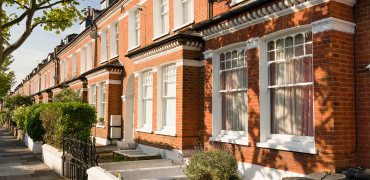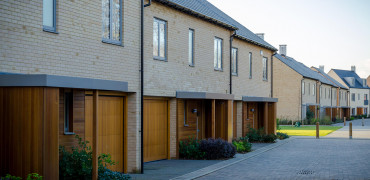Spring has come to an end, leaving us with all the warm benefits of summer to come. Longer days and better weather provide the people of Britain more time and a perfect environment for getting things done. Landlords should be of no exception to this! Let’s take a look at the importance of planned maintenance and how good foresight can save you time and money in the long run.
Sun’s out, old heating system’s out!
Most people would agree that the warm weather offers an excellent opportunity for maintenance and upgrade work to tenant’s homes. Replacing windows and upgrading insulation can make a real difference to helping tackle fuel poverty and is much easier when the weather is fine.
Look at the heating
However, one of the most important things to consider when undertaking planned maintenance is whether the property and tenant would benefit from a new heating system. Ask yourself three simple questions:
-
Is the current heating system as efficient as it could be?
-
Is it providing adequate comfort and quality for my tenants?
-
Is it costing them more money than it should to run?
If your answer to one or more of these questions causes you concern, then it’s time to reconsider the way you heat your housing stock.
Environmentally-friendly comfort and efficiency
Housing Associations are always looking to reduce carbon and increase renewable credentials, whilst also attaining maximum tenant satisfaction. Replacing heating systems such as solid fuel, direct electric and storage heaters with renewable alternatives will not only be efficient and sustainable, but it will also significantly improve comfort levels and offer a level of control craved by many tenants in this, the age of technology.
Planning maintenance can help you avoid being hit with expensive repair costs
Planned maintenance saves you money
As the old adage says; a stitch in time saves nine! The use of inefficient heating systems over prolonged periods of time can cause extensive damage to a property. Mould and damp are unhealthy, unsightly and damages furnishings; at its worst, it can render a house entirely uninhabitable and unprofitable. Repairing its damage is a time-consuming and needless expense because without addressing the underlying cause of the damp, you only serve to lay hard work and money to waste.
Because heat pumps are best suited to continuous running, they provide a more constant level of comfort for tenants when the house is occupied and reduce mould, damp and damage occurring within the property when it is vacated. By allowing tenants to heat all of their homes cost-effectively, rather than just one or two rooms, the property incurs less damage and requires less maintenance. This reduces the risk of it falling into a state of disrepair.
Heat pumps, such as the market-leading Ecodan from Mitsubishi Electric, help create a healthy indoor environment for both tenant and structure alike. The Ecodan range which has an A++ ErP rating can also significantly reduce running costs, saving money on heating bills and adding to the landlords eco-credentials.
HAs that implement renewable solutions such as heat pumps are safe in the knowledge that they are taking care of their assets as well as their tenants, providing warm homes and reducing unnecessary and avoidable expense.
Heat pumps require less maintenance going forward
The best heat pumps are easy to design, commission and install, reducing the time needed and minimising any disruption to both tenants and property. Maintenance on heat pumps is also much simpler than gas, oil or LPG, and with a professionally maintained heat pump offering an average lifespan of 15 to 20 years, savings on maintenance can be made and disruptions to the property are infrequent.
A source of additional funding
The other thing that needs to be borne in mind, of course, is the fact that heat pumps qualify for the Renewable Heat Incentive, which helps shorten the payback period.
Whatever happens in government during these turbulent political times, it seems certain that the RHI will remain for the foreseeable future. The regular payments can therefore provide social housing landlords with a guaranteed source of income for years to come, which can then be planned into future maintenance and upgrade programmes, benefiting both the overall housing stock and even more tenants.
In summary
Maintenance is an unavoidable expense faced by all landlords and housing associations. But by wisely planning it out over the course of the year and taking steps to avoid being hit with expensive repair costs in the winter, we can ensure we are conducting our business in an ethical, environmentally-friendly and economically wise manner. Enjoy the summer!
Joe Bradbury is Assistant Editor of Housing Association Magazine.



